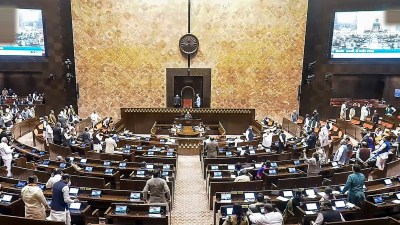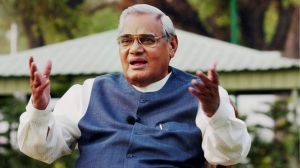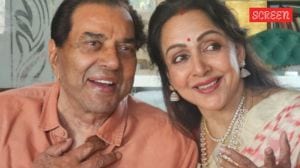BBC hunts for new bosses
The search began for two new BBC leaders on Friday amid fears its journalists will be muzzled in the fallout from the biggest crisis in its ...

The search began for two new BBC leaders on Friday amid fears its journalists will be muzzled in the fallout from the biggest crisis in its history.
Former Director General Greg Dyke, who resigned on Thursday after the BBC was damned in the Hutton report into the death of arms expert David Kelly, said all media should take note. 8216;8216;I think every journalistic organisation, newspaper, broadcaster in this country should be concerned,8217;8217; Dyke said. 8216;8216;Someone inside of government, inside of the civil service who has very real concerns 8212; as Dr Kelly had 8212; could not be broadcast unless you could demonstrate that their concerns were true,8217;8217; he told BBC Today.
Dyke, a plain-speaking populist whose 8216;8216;cut the crap8217;8217; campaign to boost creativity won respect from staff stifled by years of bureaucracy, was mobbed by tearful employees when he toured the newsroom for the last time.
Following Dyke and BBC chairman Gavyn Davies resignation widespread concern was expressed on Friday that the top two jobs would be filled by Blair placemen and that the BBC8217;s will to break stories embarrassing to the government would be sapped.
The Director of news at the BBC ordered a major rethink today of the way the BBC approaches news, and relates with the British government. In an e-mail to all news staff, Richard Sambrook accepted responsibility for 8216;8216;misjudgements8217;8217; made by the BBC in the events which preceded the David Kelly8217;s suicide.
8216;8216;BBC news, with 3,500 staff and 120 hours of parallel programmes a day, is about 10 times the size of a national newspaper,8217;8217; Sambrook wrote in his e-mail, parts of which appeared on the BBC8217;s website.
8216;8216;We must consider whether the way we currently work is appropriate for an operation of this importance and size,8217;8217; he said. Sambrook also said there needed to be 8216;8216;a change in the way politics and the media relate8217;8217;.
8216;8216;This does not mean 8216;going soft8217; or bending to pressure,8217;8217; he said. 8216;8216;It does mean that both constituencies need to show proper respect and understanding of their respective roles and responsibilities.8217;8217;
- 01
- 02
- 03
- 04
- 05































